11 June 2025
Blog by Deputy CEO, Megan Spindler-Smith.
Tuesday 10 June marked the official opening of the 18th Conference of States Parties (COSP18).
COSP18: Why This Space Matters
At the kick off of Day 2 of the 18th Conference of States Parties (COSP18) we were reminded, powerfully and emotionally, why this conference exists.
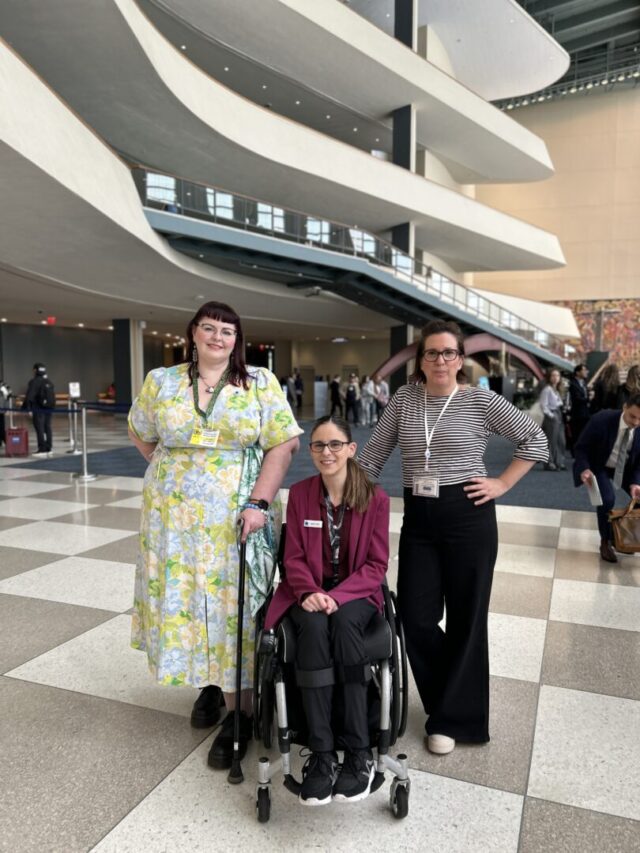
The President of COSP opened proceedings with a clear call to action: to advance the rights of people with disability, and, for the first time, to explicitly recognise the rights of First Nations people with disability. This included a crucial acknowledgment of the need for First Nations-led approaches and the urgent importance of self-determination.
Sitting on the General Assembly floor, we listened as the Deputy Secretary-General of the United Nations, Amina J. Mohammed, shared hard truths:
“AI can be the difference between isolation and real inclusion.” and “Rights are not optional. They are not negotiable. They are for everyone.”
These words cut deep. As people with disability, we are still being left behind; socially, economically, and politically. The exclusion is especially acute for those who live at the intersections of multiple forms of marginalisation, including First Nations people with disability, who are not only excluded but erased within many systems and communities.
There were calls throughout the day to stop the erasure of identity and language, including sign languages and those tied to cultural and linguistic traditions. There was strong agreement that equality is no longer flexible, and dignity is no longer negotiable.
A Call to Action – From Civil Society and Beyond
The Third Global Disability Summit has committed to advancing financial and economic inclusion for people with disability. However, there are deep concerns about increasing cuts to community-based services and the disturbing global trend toward re-institutionalisation.
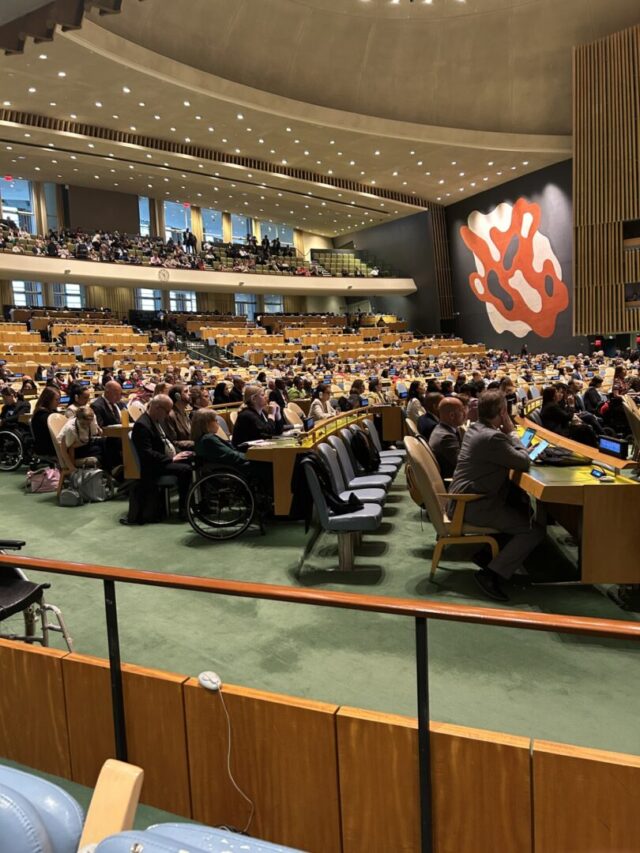
Civil society voices were strong and clear:
- Disability must be at the centre of inclusive social protection and economic justice.
- The current global environment is seeing people with disability not only left behind but actively stripped of rights.
- The world continues to view us as burdens—but we are changing the world.
There is a call for urgent action:
- De-institutionalisation must be treated as a global emergency.
- Invest in robust, inclusive, rights-based care systems that allow people with disability to live in community, with choice and dignity.
- AI and emerging technologies must be disability-led, and support—not entrench—our human rights.
- Organisations of People with Disability (OPDs) must be trusted, funded, and included in all decision-making.
Our experiences are shaped by more than just disability; they are shaped by race, culture, gender, sexuality, and class. Inclusive data collection, service delivery, and dialogue must reflect and recognise the full diversity of our lives. COSP matters because it’s a space for our voices and for holding systems accountable. It reminds us that global solidarity is still possible, and essential.
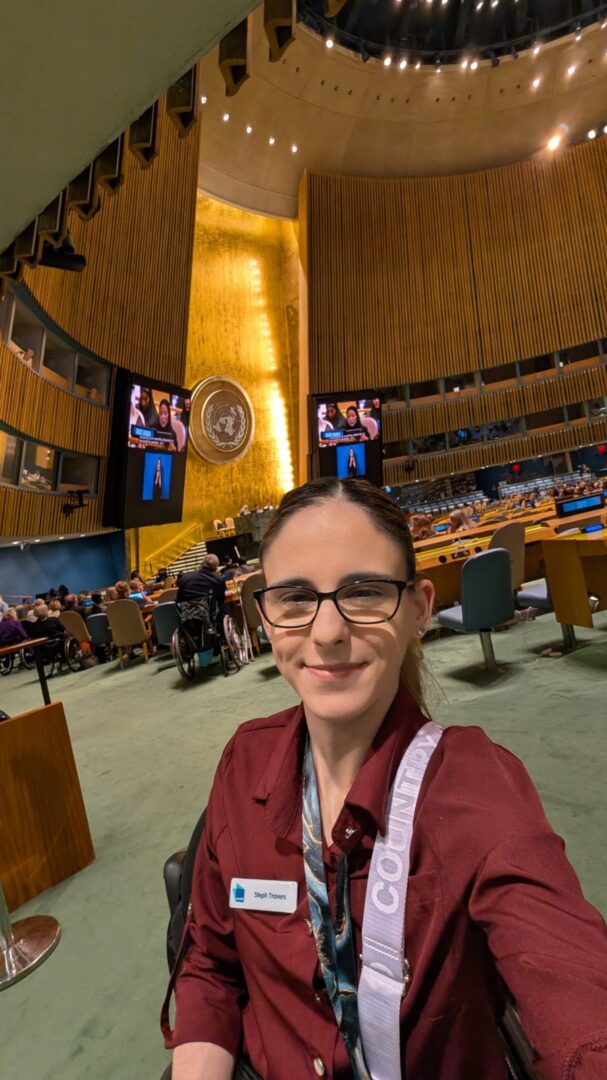
Intersectionality and Inclusion at the Forefront
Key interventions today included strong calls to recognise the intersection of disability and First Nations and LGBTIQA+ lived experiences. These spoke to the compounded discrimination people face in health care, education, and within the disability community itself. The need for truly inclusive access to community life, education, employment, and recreation was a consistent theme.
Discussions on data collection made it clear: what isn’t measured, isn’t monitored and what isn’t monitored, isn’t addressed. Inclusive change requires investment, and OPDs must be involved from the beginning.
There were also strong reminders that protections already established under the CRPD must not be weakened. As people with disability, we are often left out of responses to global crises and disasters, this must change. We need to be at the table before disaster strikes.
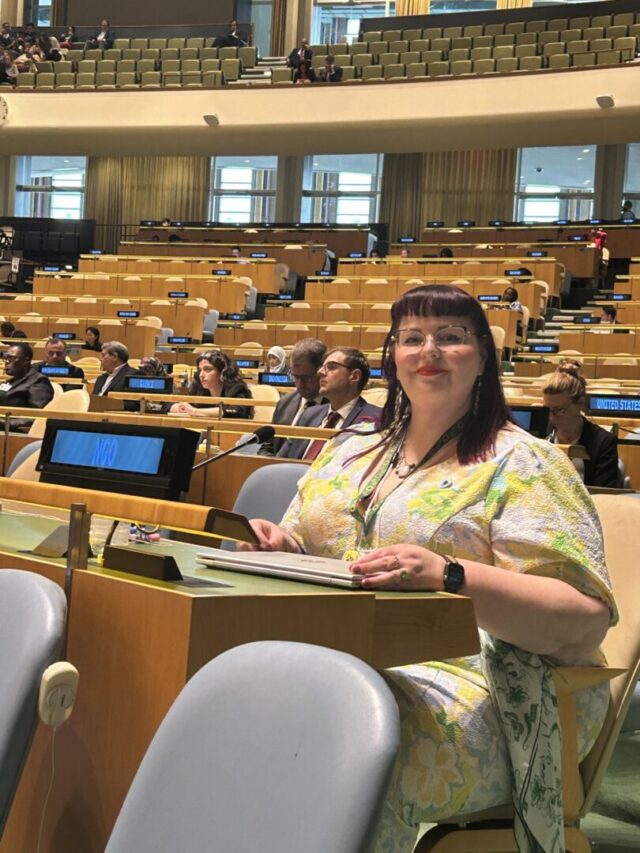
Australia on the Global Stage
Rosemary Kayess from the Australian Human Rights Commission presented important reflections on Australia’s preparations for the second Social World Summit. She stressed the importance of First Nations peoples’ participation, noting that Indigenous rights provide a vital framework for embedding disability rights and self-determination. She highlighted CRPD Articles 3, 4, and 33.3, and reiterated the need for a national human rights act to harmonise our laws with international obligations.
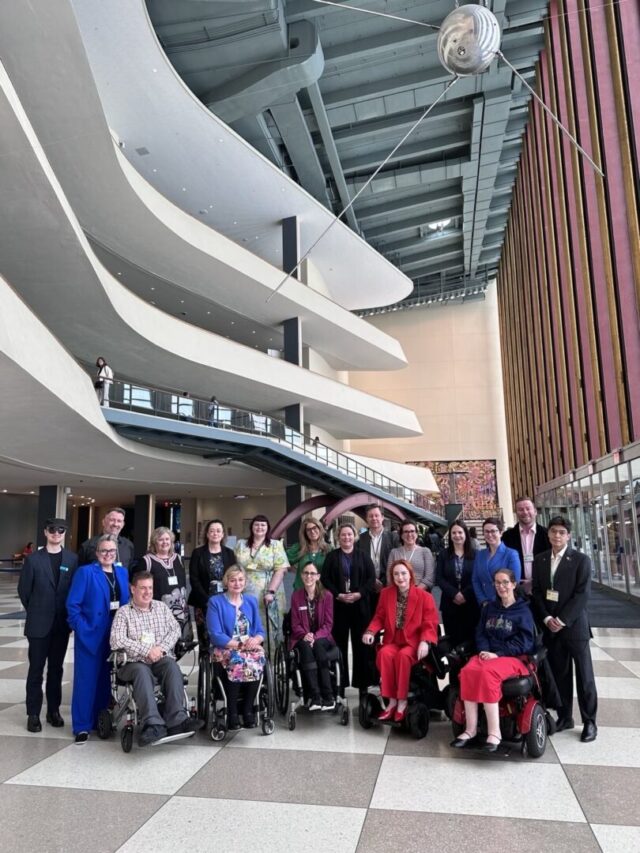
In the General Assembly, PWDA’s own Megan Spindler-Smith delivered a compelling intervention on the need to centre multiply marginalised people with disability, especially First Nations, CALD, and LGBTIQA+ communities. You can watch the video.
At lunch, members of our team reconnected with other Australian delegates, including Jane Spring from the Disability Strategy Advisory Council.
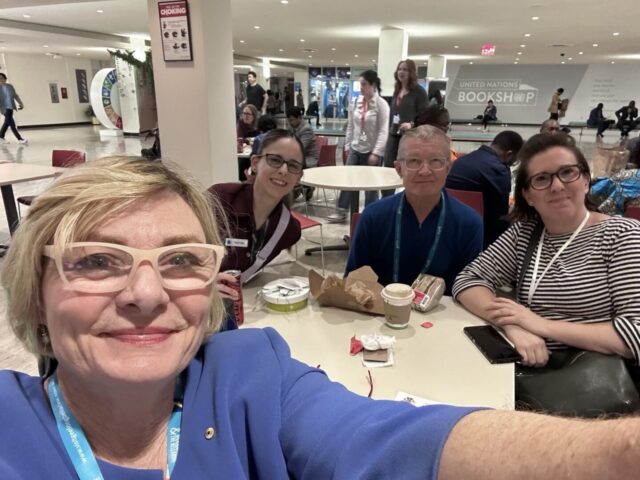
Side Events and Legislative Change
In the afternoon, Steph Travers and Alex Bignell attended a side event hosted by Malta on using legislation to advance Article 13 of the CRPD (Legislation as a driver for change – a disruptive approach to CRPD’s Article 13 (CRPD-COSP18). This session explored how legal systems, developed by and for disabled people, can support access to justice and drive social development. The session featured contributions from IDEA Nepal, CBM Global Disability Inclusion, and others, examining how disability rights frameworks can disrupt old systems and build truly inclusive societies.
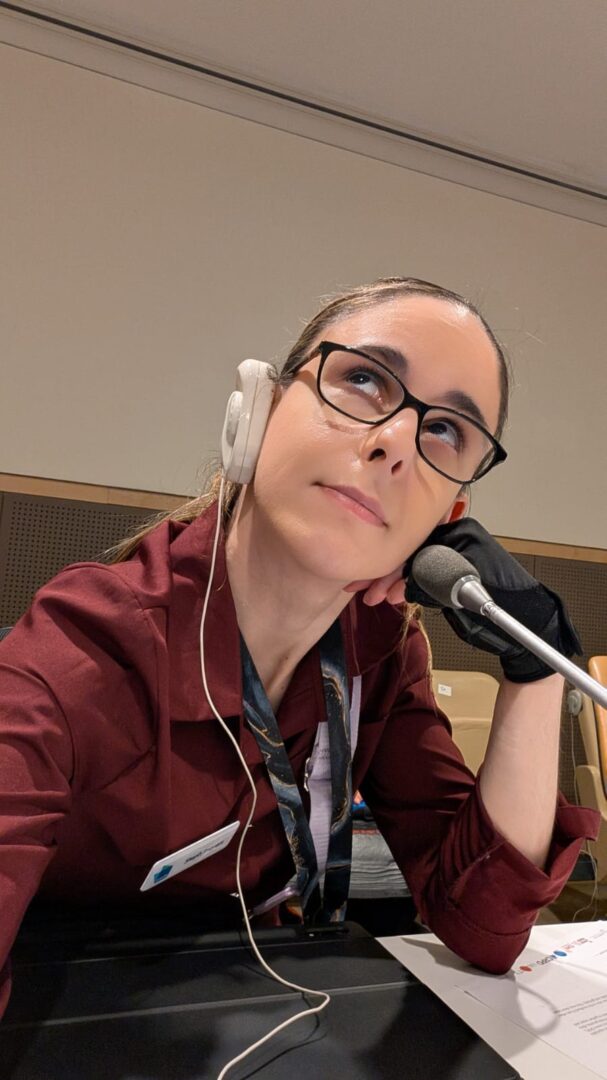
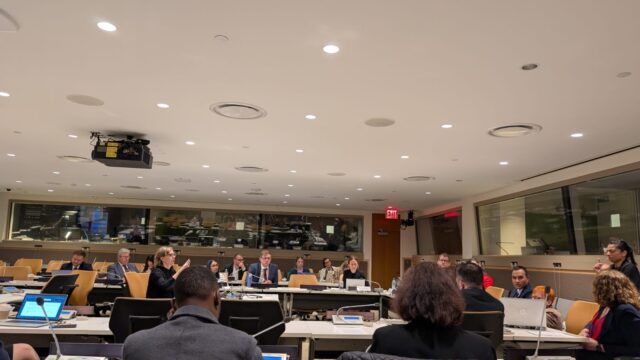
Powerful Closing Messages
Throughout the day, NGOs and CSOs brought passion, urgency, and clarity. Australian organisations including QAI, WWDA, and CYDA made strong calls for justice-centred, intersectional reform to the CRPD, particularly in response to the global erosion of our rights.
A standout quote from WWDA’s Sophie Cusworth captured the spirit civil societies thoughts for the day:
We urge all States Parties to unequivocally reject anti-gender and anti-rights rhetoric.
As Day 2 draws to a close, one message is loud and clear: people with disability must be at the centre of decisions that impact our lives. We must be seen, respected, and heard—not as an afterthought, but as leaders.
Stay tuned for more updates from your PWDA delegation at COSP18.
#COSP18 #PWDA #DisabilityRights #NothingAboutUsWithoutUs
Follow Along
Stay tuned as PWDA continues to represent and advocate throughout #COSP18.
Ends | Contact Us
